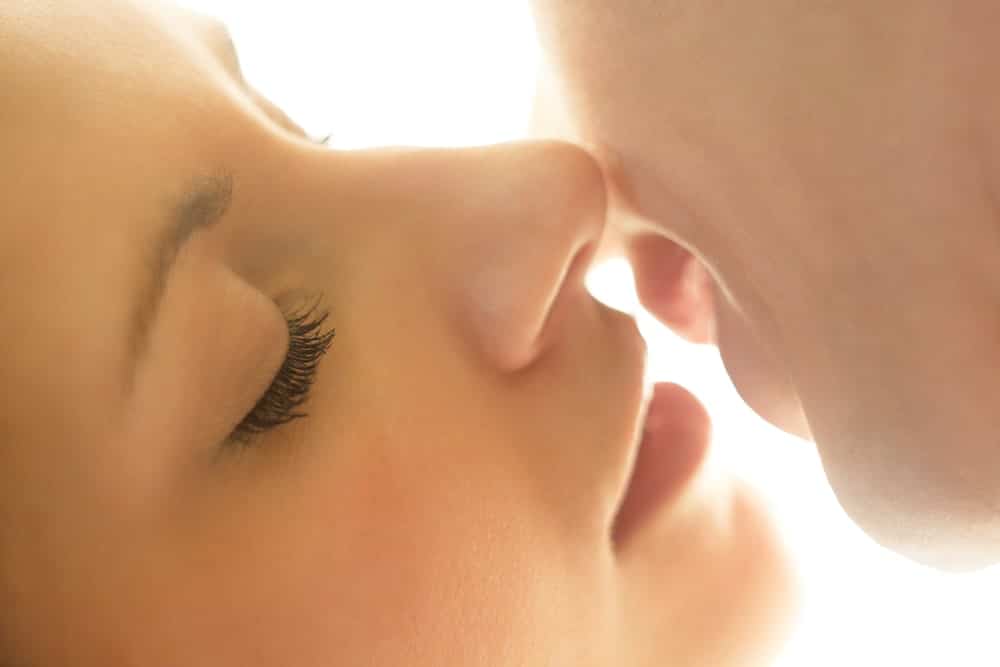Here’s Why Kissing Can Be Dangerous!
If you’ve decided to practice the fine art of smooching, then you need to know what to expect! When it comes to kissing, you need to choose carefully, because as it turns out, you might catch more than just feelings!
Even if kissing provides us with a ton of health benefits, it might also transmit many germs (bacteria and viruses) which will ultimately lead to disease. Without trying to ruin your mood, we made a list of all the diseases and infections you might get by kissing the wrong person. And no, we don’t talk about compatibility here! Here’s what you need to know!
How do we spread germs while kissing?
As some illnesses spread faster than others, the most common way of catching something from kissing is right before your lips make contact. When you’re around someone who has an infection, they can either breathe out infected particles into the air, or they might cough or sneeze droplets about a meter away from them.
Also, if you breathe in the infected material, or even come in contact with it then touch your nose or your mouth, you might get infected. You could also catch a disease during kissing, getting all kinds of bacteria and viruses in your saliva or even your blood.

Herpes virus infections
There are many viruses in the herpes virus family. These could include the Epstein-Barr virus, herpes simplex virus, cytomegalovirus, but also varicella-zoster virus (which causes chicken pox). All these viruses are easily spread during kissing.
Glandular fever/ mononucleosis (Epstein-Barr virus)
Mononucleosis, which is caused by the Epstein-Barr virus, is commonly known as the “kissing disease”, due to how well it spreads through virus-containing saliva. Even if it has quite an endearing name, the disease is quite unpleasant, because it causes intense fatigue, and symptoms similar to the flu, such as a sore throat, fever, weakness, and even swollen lymph glands.
It’s most common in young people between 15 to 30 years of age, especially those who spend a lot of time in close contact with other people. The disease and its various symptoms usually last between one and two months. There’s no specific treatment other than bed rest, drinking plenty of fluids, eating well, and also taking over-the-counter medication to help with symptoms.
Cold sores (Herpes- Simplex Virus)
Cold sores, also known as “fever blisters,” are generally caused by herpes simplex virus 1 (HSV1), and are generally transmitted when an infected cold sore gets in contact with a mucous membrane, or even a broken skin. It’s believed that half of adults in America are infected with HSV1.
Another relevant strain of HSV (HSV2) is generally associated with genital herpes. Even if cold sores are mostly infectious when open and leaking fluid, they can even be infectious before symptoms pop, and they can be easily spread by a quick smooch.
And the worst thing is that even if your current make-out buddy might not, this virus will stay with you for life! However, there is some good news, too: it generally perks up every once in a blue moon, when our immune system is crashing.
When the virus perks up, symptoms generally last ten days and involve burning, itching, or even tingling. Sometimes, they might be accompanied by a sore throat, swollen glands, or even fever, followed by a cold sore that manages to heal on its own. Some medications might speed up symptom resolution.
Warts (Human Papilloma Virus, HPV)
Warts are way more likely to be spread during kissing, especially if there’s a break in the skin. That being said, oral warts are quite rare and might take a fair amount of contact to transmit them.
Respiratory viruses
These might include the common cold, influenza, mumps, and many other things that can be spread by droplets. You are way more likely to catch them before locking lips, as long as you’re close enough. Moreover, if your kissing conquest has got the sniffles, it would be recommended to steer clear until the cold or flu has successfully passed.

Influenza
You can spread the flu from a day before, up until seven days after the symptoms start. That’s a lot, right? It might also cause a fever, cough, weakness, fatigue, body aches, and even a sore throat. Generally, people get better in under two weeks, but preventing yourself from catching the condition is definitely the best option out there!
Tooth decay & gum disease
When you’re making out, you don’t just share the saliva. Oh no! You also share the flora of bacteria, viruses, and mucus that are living in your mouth. Gum disease itself can’t be spread by kissing, but the “bad” bacteria that cause it definitely can be.
This is way more likely to happen when your immune system is compromised. These germs generally build up and form plaque, which could cause cavities and gum disease (gingivitis) when it build up under your gum line.
The spread of “bad bacteria”, is way more likely to take place if the natural immune system of your mouth is already compromised. The best bet is to prevent this and keep good oral hygiene. Brushing your teeth twice a day and flossing before bed is also the way to go. This will efficiently prevent the bacteria from being able to grow in your mouth.
Meningitis
Both viruses and bacteria might cause meningitis (which is an inflammation of the membrane around the brain and spinal cord). When you’re in close contact with someone who has viral meningitis, which generally spreads by respiratory secretions, it might result in you getting the virus as well.
Luckily, it rarely turns into meningitis. Some symptoms of meningitis also include a fever, headache, and stiff neck, but also nausea, and vomiting. It is a serious condition for which instant medical help should be sought.
Syphilis
Even if in most cases it is transmitted through intercourse, on rare occasions it can also be spread by kissing. This is mainly because syphilis might cause round and open infectious sores in the mouth. Syphilis can be easily treated by doctor-prescribed antibiotics.
Luckily, other STIs like HIV, chlamydia, and even gonorrhea are less likely to be transmitted through kissing. But if you are worried about your se*ual health, you could always make an appointment with your gynecologist.
Luckily, it’s not all doom and gloom
Before you rush into any hasty decisions, like giving up kissing for life, it’s worth remembering to put things into perspective. There are many important health benefits to passionate kissing, such as stress reduction, emotional bonding, and, of course, metabolic boost. Moreover, most kisses won’t cause disease. In fact, from a realistic perspective, your chances of cathing any of the above-mentioned nasties are quite small!
Here’s how to prevent it:
First, if you know someone is sick, maybe try NOT to kiss them! If you notice a cold sore on your crush’s lips, avoid kissing them until it’s gone. Last but not least, make sure you properly brush and floss your teeth. Now, for proper smooching, you will need a good lip balm, and that’s why we recommend you get this one.
If you’re interested in reading other similar articles, then you definitely need to check: Experiencing Nighttime Anxiety? Here’s How to Get Rid of It for Good





